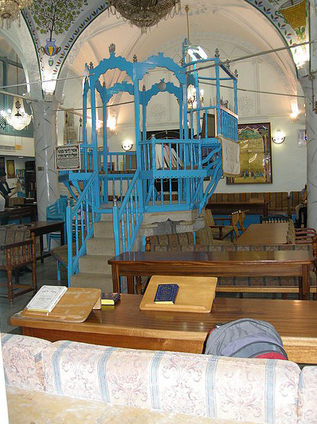
November 23, 1584
Sultan Murad III orders an investigation into the number of synagogues in Safed in the Land of Israel. Murad III ruled the Ottoman Empire from 1574 until his death in 1595. During his reign, the status of Jews in the Empire declined as he sought to reinforce the Islamic nature of the Empire.
To achieve this, the Sultan reinstated specific laws for non-Muslims. Under Islamic law, Jews and Christians were classified as protected people, or dhimmis, in Arabic. As such, Judaism and Christianity were tolerated religions. Their followers were allowed to practice their faith openly and organize in autonomous [self‐ruled] communities, as long as they followed a set of specific rules. Murad III forbade dhimmis from wearing silk and ordered them to wear a special tall hat.
Murad III’s reign also brought about a restriction on building and repairing synagogues. The investigation he ordered in November 1584 stated, “The Qadi of Safed has sent a letter reporting that in Safed there are only seven mosques. But the Jews who in olden times had three synagogues have now thirty-two synagogues, and they have made their buildings very high. Furthermore, they have bought much real estate and constituted it as pious foundations for their synagogues. Thus, they have given much annoyance to the Muslims. I have therefore ordered that you shall personally investigate the said matter and report.” (Stillman, Norman A., The Jews of Arab Lands: A History and Sourcebook, Philadelphia: Jewish Publication Society of America, 1979, p. 300)
Within a few years, the number of synagogues in Safed was reduced by one-third. Similarly, in 1586, the Nahmanides Synagogue in Jerusalem was closed and turned into a warehouse after 300 years of use by the Jewish community; it was reopened in 1835.
